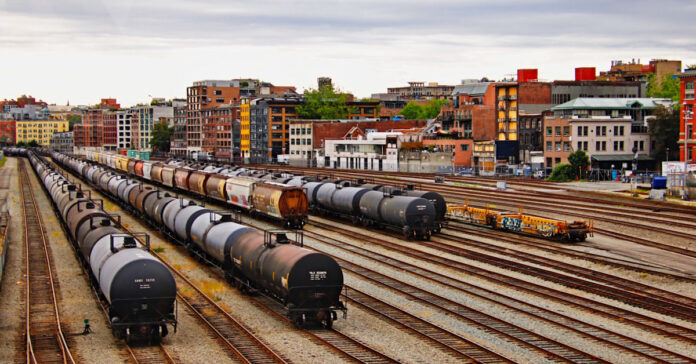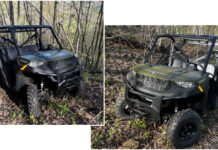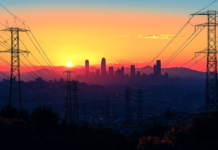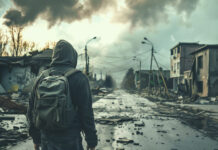The pipeline hack and resulting gas shortages in the Southeast last week should serve as an important reminder of how vulnerable our infrastructure is to disruption. We also saw recently that traffic was stopped up on the Mississippi River because of damage on the I-40 bridge in Tennessee. Not long before that, a ship stuck in the Suez Canal halted a portion of global trade. The lesson is that it doesn’t take much to upset the carefully balanced apple cart of modern society.
There are a few other natural or manmade disasters that can interrupt the flow of goods and threaten us with a breakdown.
Potential Disasters
- Blizzards, snowstorms and ice storms snarl traffic every winter. Some of these occur regularly as high-mountain passes get snowed in. At other times, a surprise storm causes a 90-vehicle accident on a major interstate and halts traffic for a day or two.
- When landslides or rock slides occur, they can block interstate highways for weeks. In many cases, the nearest work-around suitable for 18-wheelers might take them hundreds of miles out of the way, slowing the delivery of goods.
- Elevated roadways may be popular, but they are vulnerable to earthquakes, as we have seen in California, and could also be easily destroyed in a war. But not all earthquakes are in California or Alaska. The New Madrid quakes in late 1811 and into 1812, the worst quakes in our nation’s history, covered an enormous area in and around Missouri and Tennessee. They caused land to rise and fall by dozens of feet and even made the mighty Mississippi River run backwards for a short time. Such a quake today could cause massive disruption over much of the Midwest and affect many of the goods flowing from one coast to the other. The potential infrastructure damage that such a quake would cause today is both unmeasurable and unimaginable.
- Bridges and tunnels are also vulnerable to earthquake, as well as to terrorism or attack by a foreign enemy. New York City is an obvious candidate for this kind of attack, but cities that are not on islands also have important bridges and tunnels. Think Washington DC, Boston, Pittsburgh, San Francisco, and many more.
Assess Your Vulnerabilities
I recommend that preppers, especially urban preppers, revisit how easy it would be to shut their city down, cut it off, or isolate it should a natural disaster, cyber-attack, or act of war hit. Questions to consider and discuss with your family or prepper group include:
If you plan to bug out, what will you do if the main interstate highway is out? How many alternate routes do you have? Some cities like Indianapolis and Chicago sit at the confluence of multiple interstate highways. Then there are cities like Austin and Tallahassee that are served by only one Interstate. It is much easier to cut supplies off to one of the latter than one of the former.
How many bridges or tunnels would need to fail or be blown up to cut services and supplies to their city? What if the trucks that bring food and fuel can’t roll because the bridges were closed, or the Interstates shut down for multiple days or weeks? As a prepper you should have food stored, but are you ready and able to protect it from others as hunger rises and people become violent?
What would a FEMA response look like, and how would it be organized if the main arteries into your city were cut off?
How many rail routes serve your city? What important commodities do they bring?
How much of your supplies come in via water? (This could include oil, natural gas, gasoline, coal for electric generation, wheat and other food stuffs, etc.)
Don’t Forget Utilities
What is your city’s source of water? Is there just one water source and one huge purification plant? How often does drought cause water restrictions? In a big city, chances are good that rail delivered the chemicals that purify your municipal water. How many of them go over bridges or use tunnels that a natural or man-made disaster could easily disrupt?
Where is your local electricity produced, and by how many power plants using how many fuel sources? What would happen if someone hacked and shut down the natural gas pipelines?
How is your home heated? Do you have an alternate or secondary method of heat?
Evaluate Your Security Situation
The quote “Every society is three meals away from chaos” is attributed to Lenin, but it still applies today. Hunger motivates people to do things they would not consider under normal circumstances, whether this is riot in the street, loot the local grocery store, burglarize their neighbor, or kill someone to get their food storage.
How ready are you to defend yourself and repel boarders? Or are you planning to lie low and hide out while those all around you kill each other? (If so, you must have a dang good hiding spot.) Perhaps you hide your supplies in an off-site cache and you will wait until things calm down to access them?
Perhaps it is now becoming clear why I left the city almost twenty-five years ago and then left the suburbs.
Terrorism
This week, we have seen convoys of vehicles flying the Palestinian flag attack and harass Jews in prominent cities. It is not much more of a stretch for several Hamas cells to appear and start taking out critical bridges, power stations, tank farms, and other pieces of critical infrastructure? Perhaps it will be ISIS fighters that start hitting targets of opportunity in the U.S.? After all, the Southern Border is open now and Border Patrol has already stopped Muslims from crossing illegally.
We live in a largely peaceful country, but it would not be difficult to change that, and terrorists could cause tremendous damage to our infrastructure with low-tech attacks.
The Threat of Civil War Two
Much about the threat or possibility of Civil War 2 was written and discussed last year. That talk faded as the White House changed hands, but that doesn’t mean the threat is over. Socialists often turn to revolution when they cannot achieve their aims via politics and protests. It’s also possible that they will use confiscation to bait gun owners into watering the tree of liberty with the blood of patriots and tyrants.
Perhaps the above discussion about vulnerabilities will remind those living in blue cities surrounded by red states just how easily they could be to isolated and starved of the basics, including food, water and utilities. Another reason preppers should get out of the city while you still can.
If your job is holding you in a city and moving to Rural America is not an option, my advice would be to move outside it, find a property without a home owners association, build a sturdy fence with a locking gate, and set yourself up a small homestead with a garden, berries, fruit trees and small livestock. Before we moved to the mountain, our past two houses had well, septic, and two or more acres, so this goal is achievable, and such a location is far more survivable in the event of terrorism or CW2.
Better yet would be the same set up in a small town.
Streaming, green energy, just-in-time manufacturing, imitation meat made from vegetables, milk made from oats or almonds, and owning nothing may all sounds great, until one disaster wipe it away and we fall back on what we store in our basements. Then you will wish you had a radio, a pair of work boots, and a deep pantry.







